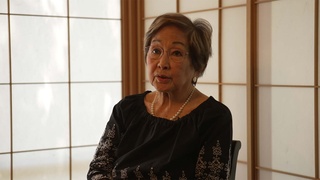Interviews
Impact of Coming Out Publicly in the US and Japan
I remember at our confirmation, my Senate confirmation hearing or actually the final vote I had like strangers coming up to me or women much older than me saying we've decided to be open because of, you know, your example.
And, I've had that I actually spoke in Japan. They have a gender in law society and law professors and lawyers that study gender issues. And for the first time I gave a keynote. It was at a Waseda university and I gave a keynote on LGBTQ issues, and I was very open. And after that, there were law professors and lawyers asking questions coming out publicly. And my friends in Japan said this has never happened. People were never willing to be open before.
So, I do think it's important for people to be open to give examples, positive examples to other people.
Date: July 14, 2022
Location: California, US
Interviewer: Lana Kobayashi
Contributed by: Watase Media Arts Center, Japanese American National Museum; Japanese American Bar Association



